The aim of the Cardiovascular Physiology Research Group is to produce impactful and internationally recognised research within the area of integrative and experimental cardiovascular physiology. To achieve this, the group work in collaboration with clinicians, physiologists, local health boards, industry, charities and the public to investigate the acute cardiovascular responses and chronic adaptations to ageing, disease, exercise, pharmacology and implantable devices. The group also aims to have a real-world impact through informing clinical practice (both human and veterinary). Examples of the group's international reach and reputation include the primary contributions and leading of trials or campaigns e.g.: global high altitude physiology trial; national and international blood pressure awareness campaign; expert panel membership on maternal haemodynanics; national and EU cardiovascular networks, population-based ageing trial; heart failure research, implantable device therapy research and informing veterinary practice.
Blood Pressure Awareness and Population Risk
Dr Barry McDonnell
Currently, our group are leading the UK and Republic of Ireland May Measurement Month (MMM) blood pressure screening and awareness campaign.
Elevated blood pressure (BP), or hypertension, is a growing burden worldwide, leading to over 10 million deaths each year. May Measurement Month (MMM) is a global initiative aimed at raising awareness of high BP and acting as a stimulus to improving screening programs worldwide. In the United Kingdom (UK) nearly 1 in 5 people, and in the Republic of Ireland (RoI) 3 out of 10, have hypertension, of which a large proportion remains undiagnosed. An opportunistic cross-sectional survey of volunteers aged ≥18 years was carried out in May 2017 and 2018. Screenings sites in hospitals, universities, shopping centres, workplaces, sports clubs, community centres, GP practices, and pharmacies were set up across the UK and RoI as part of this initiative.
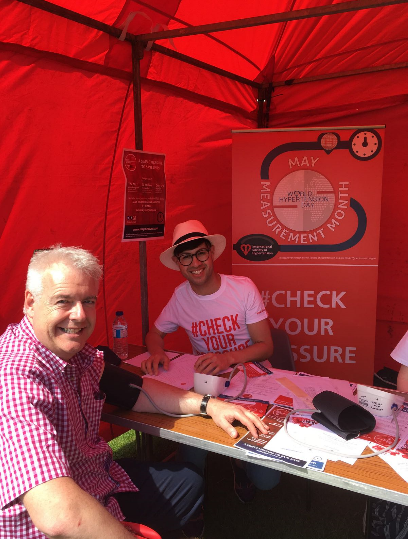
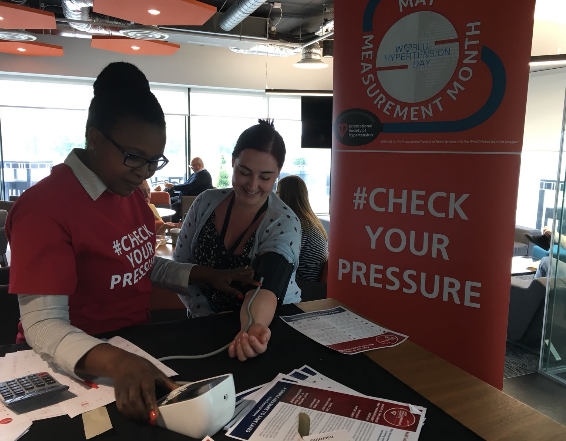
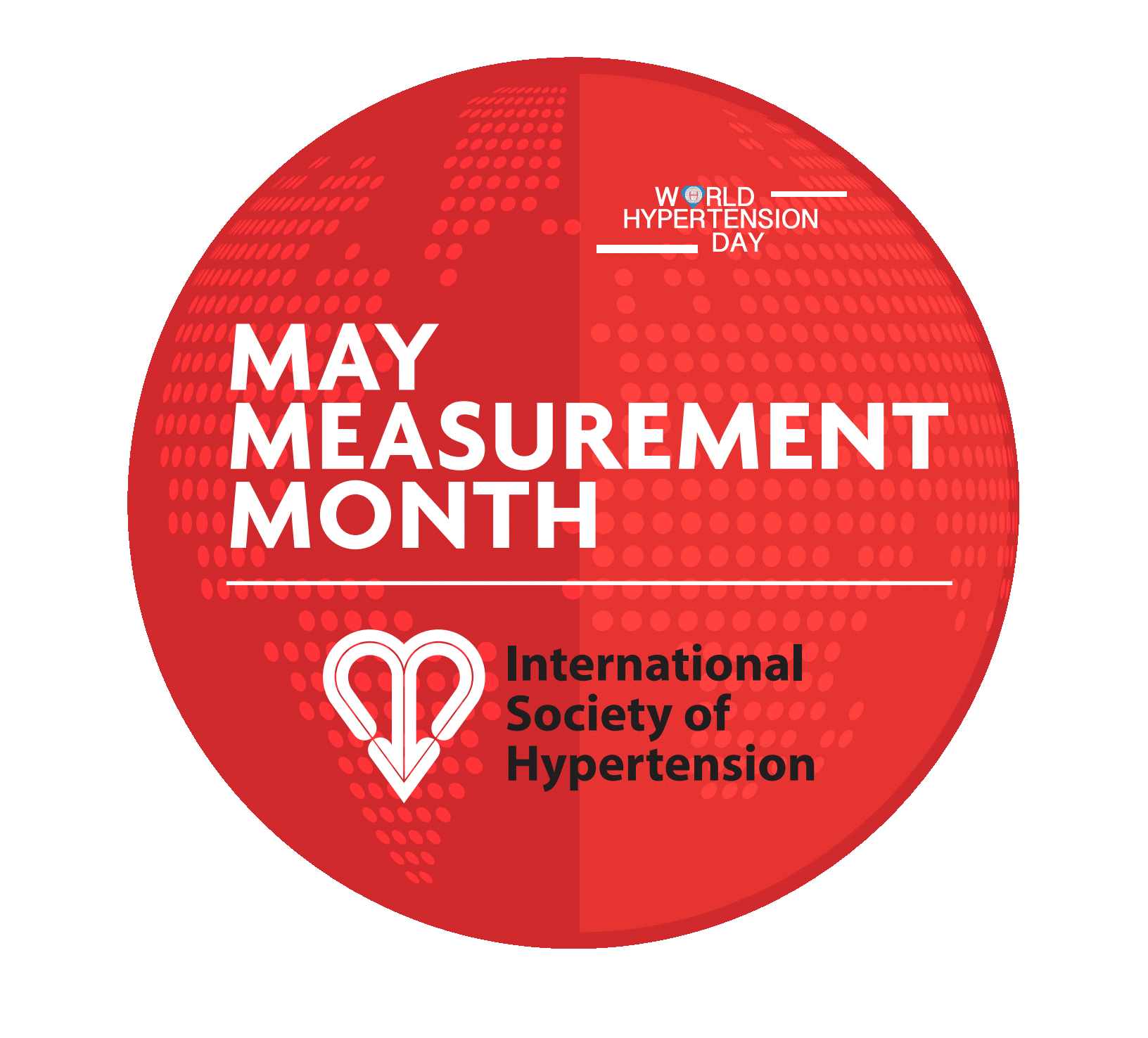
Haemodynamics Informing Treatment in Patients with Left Ventricular Assist Devices: "HIT LVAD Trial"
Dr Barry McDonnell and Dr Eric Stöhr
Advanced heart failure (HF) is a growing health problem in the European Union. Consequently, a growing number of (HF) patients now depend on state-of-the-art continuous flow Left Ventricular Assist Devices (cf-LVAD) as a bridge to transplant or as a means of destination therapy. Since the introduction and usage of cf-LVADs rather than traditional pulsatile LVADs, survival rates have significantly improved. However, an increased number of side effects, including stroke and microvascular bleeding have been reported. Lack of pulsatile pressure and flow throughout the system has been suggested as a causative mechanism for these side effects however, there are currently no data on macro/micro haemodynamics in these patients.
Our objective therefore is to provide 5 work packages to understand the consequences of decreased pulsatile blood pressure and flow haemodynamics in cf-LVAD patients compared to HF patients and age-matched controls.
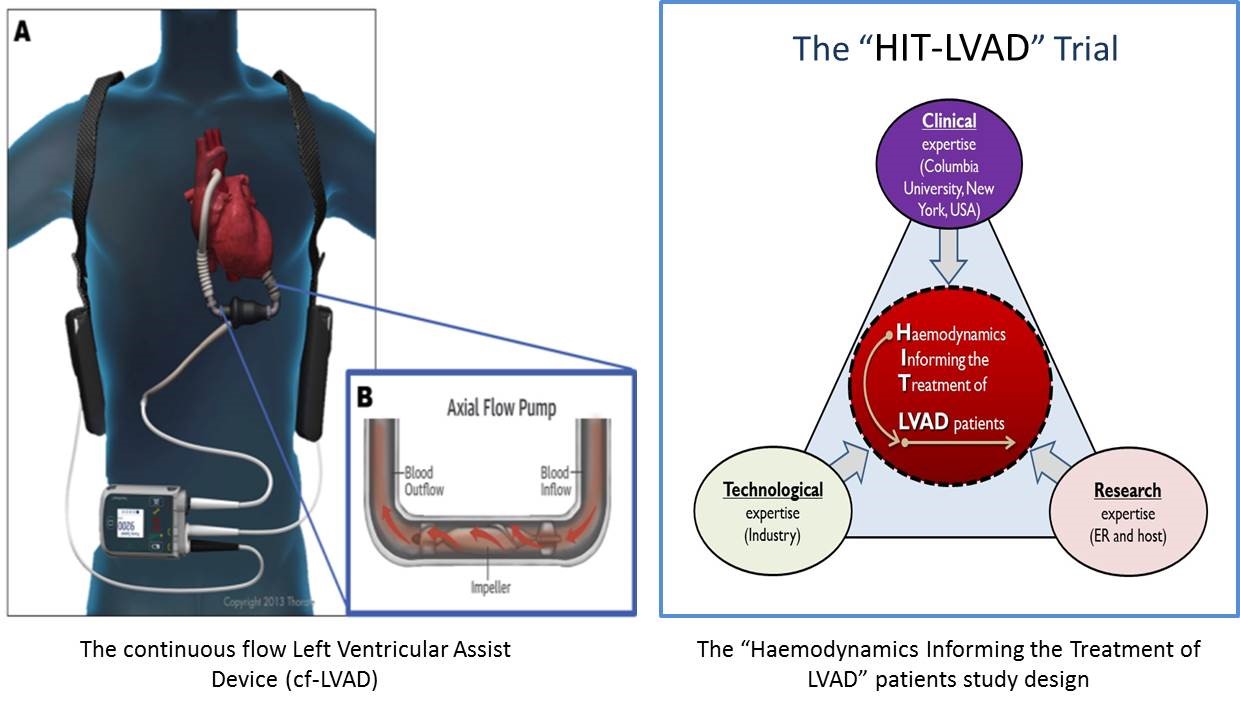
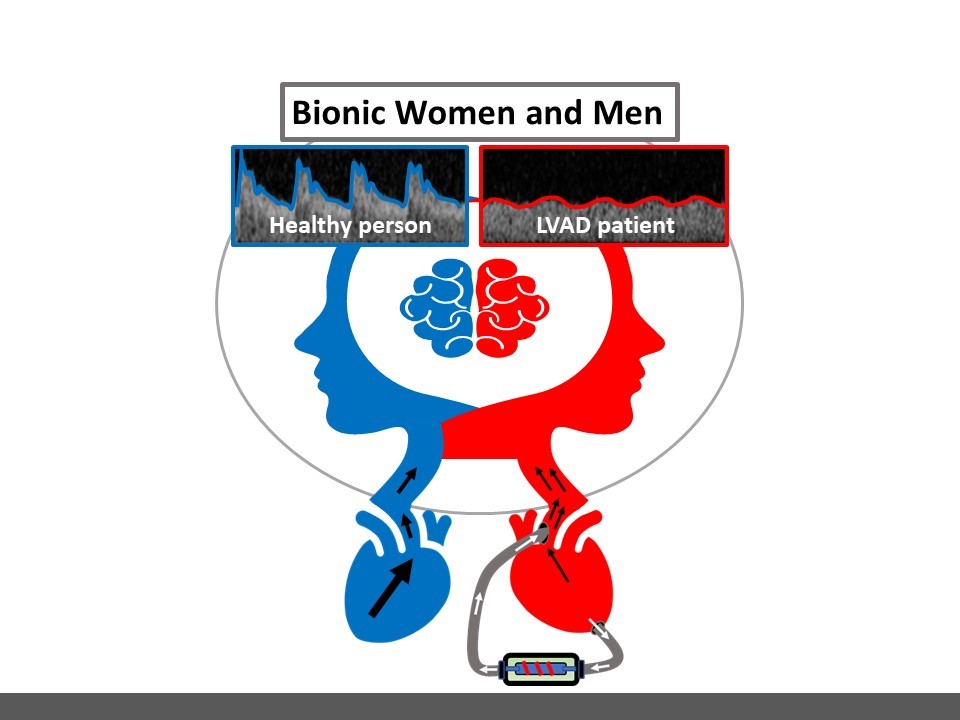
Vascular Ageing and Cardiovascular Risk
Dr Barry McDonnell
a) Anglo Cardiff Collaborative Trial:
Cardiovascular disease is now the leading cause of death worldwide, with myocardial infarction and stroke accounting for over 20% of all deaths. As part of the
Anglo-Cardiff Collaborative Trial (ACCT) in collaboration with the University of Cambridge, we now know that arterial stiffness is an independent predictor of heart attack and stroke. There is a general consensus that arterial stiffening in the Western population is an inevitable consequence of growing old and until relatively recently, 'hardening of the arteries' was recorded on death certificates. However, stiffening of the arteries is not inevitable and we are following the time course of arterial stiffness in a large population-based cohort in order to help identify the causes of this problem. This study aims to identify potential new targets for drug treatment to reverse or slow down arterial stiffening, which should then lead to major reductions in the incidence of diseases such as heart attack and stroke.

b) Assessment of Risk in Chronic Airways Disease (ARCADE):
Chronic Obstructive Pulmonary Disease (COPD) is a multisystem disease. In addition to respiratory diseases, the causes and development of complications such as cardiovascular disease, osteoporosis, and loss of muscle mass and function are not well understood. The
Assessment of Risk in Chronic Airways Disease (ARCADE) trial commenced in 2011 at Cardiff University to investigate these problems, and with the help of the British Lung Foundation, GP's and respiratory consultants, over 500 volunteers with COPD and 150 individuals without lung problems have been recruited. The ARCADE cohort have been assessed at a baseline visit and a 2 year follow-up visit, where in-depth cardiovascular and respiratory measurements are assessed. The study has now transferred to Cardiff Metropolitan University, where additional measurements related to cerebral dysfunction and stroke at the 5 year follow-up visit of these volunteers is currently taking place.

The Heart That Twists
Dr Eric Stöhr
For decades, it has been known that the left ventricle, the largest chamber in the heart, contracts with a twisting (‘wringin’) motion. This muscle deformation has been characterised in numerous healthy and diseased states, but the real purpose and impact it has in overall cardiovascular regulation and health remains elusive. My research within this field aims to elucidate that role and improve our fundamental understanding of human heart function.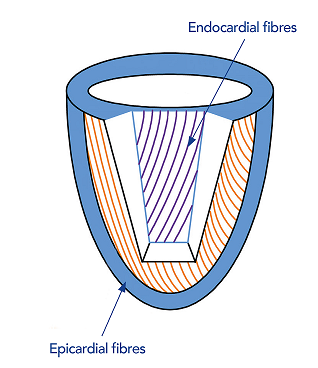 Figure published in: Stöhr et al.(2016). Am J Physiol Heart Circ Physiol; 311:H633-44
Figure published in: Stöhr et al.(2016). Am J Physiol Heart Circ Physiol; 311:H633-44
Cardiac Adaptation in Health and Disease
Dr Eric Stöhr
As a result of exercise, pregnancy or various diseases, the human heart adapts in size and function. A long-held concept is that bigger hearts (such as those of athletes and pregnant women) produce a greater volume of blood with each beat compared with sick hearts (heart failure and dilated cardiomyopathy) because of a better function. However, in a previous study, we have challenged this view by showing that healthy hearts of different sizes produce different volumes of blood with each beat despite the same function (Cooke et al., 2018). Therefore, my research aims to understand the interaction between heart structure (size) and heart function (muscle contraction and relaxation) interact to produce the volume of blood ejected with each beat.
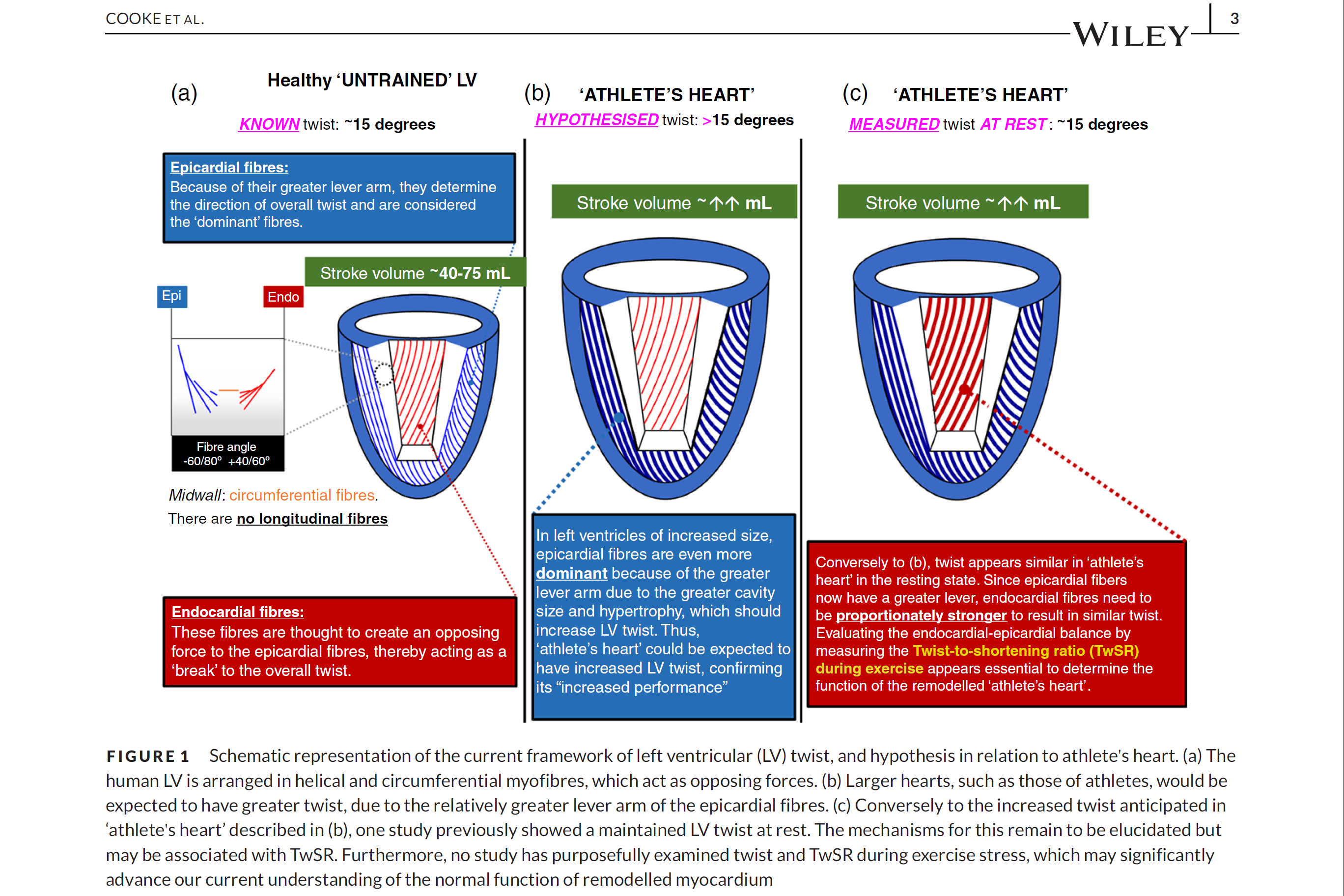
Cooke, S, Samuel, TJ, Cooper, SM & Stöhr EJ. (2018). Adaptation of myocardial twist in the remodelled athlete's heartis not related to cardiac output.
Exp Physiol 103, 1456-1468.
Exercise in PCOS: a pilot RCT
Dr Rachel Lord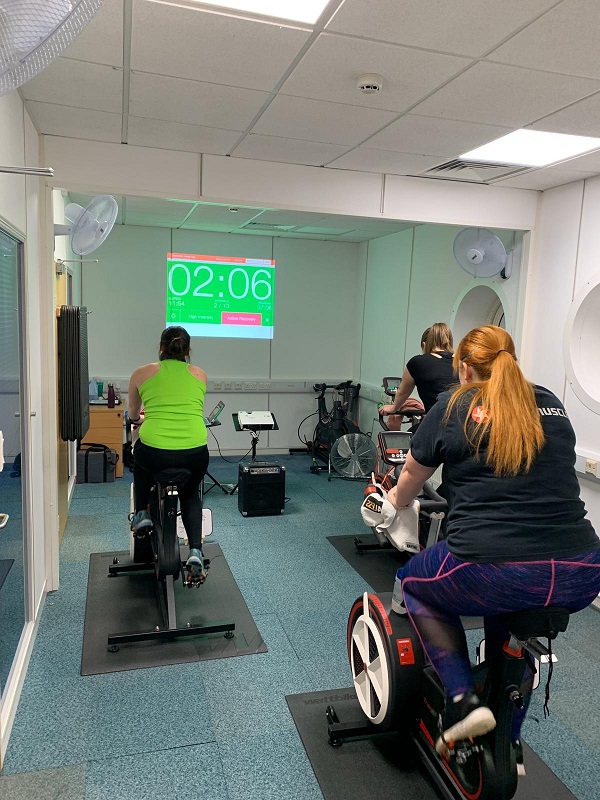
Effects of high-intensity interval training versus moderate-intensity steady-state training on mental health, cognitive and cardiometabolic outcomes in young women with Polycystic Ovary Syndrome: a pilot randomised, controlled trial:
Polycystic ovary syndrome (PCOS) is a common condition affecting young women. Patients are at increased risk of developing type 2 diabetes and several mental health conditions, including depression and anxiety. Lifestyle modification, including exercise, is an important part of management, but the best way in which this can be achieved is unclear. HIIT may improve mental well-being, cognitive performance and physical health in women with PCOS, compared with MISS or usual care.
Occupational Physical Activity for Employee Health, well-being and productivity
Dr Rachel Lord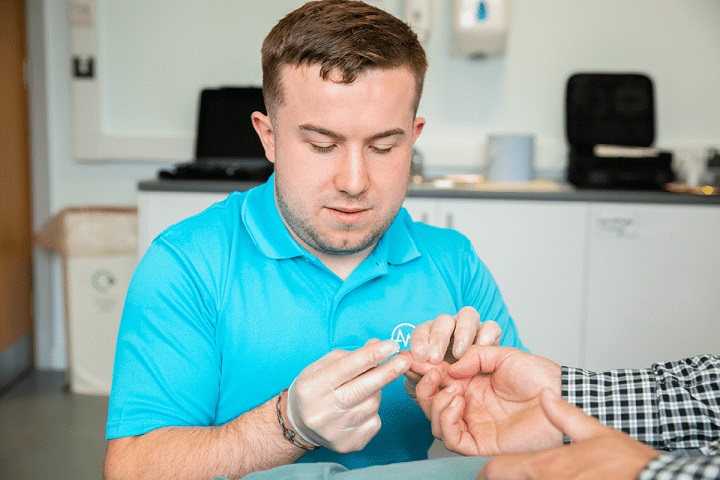
Current occupational health strategies are notoriously ineffective and insufficient to address the challenges faced. In collaboration with Agile Therapy, I am designing and delivering work-based health initiatives to improve both physical and mental wellbeing. A co-production approach is facilitating input from key stakeholders, including employees and employers, to ensure development of feasible interventions appropriate for the work environment.
Arterial Baroreceptor Control of the Vascular Sympathetic Baroreflex
Dr Rachel Lord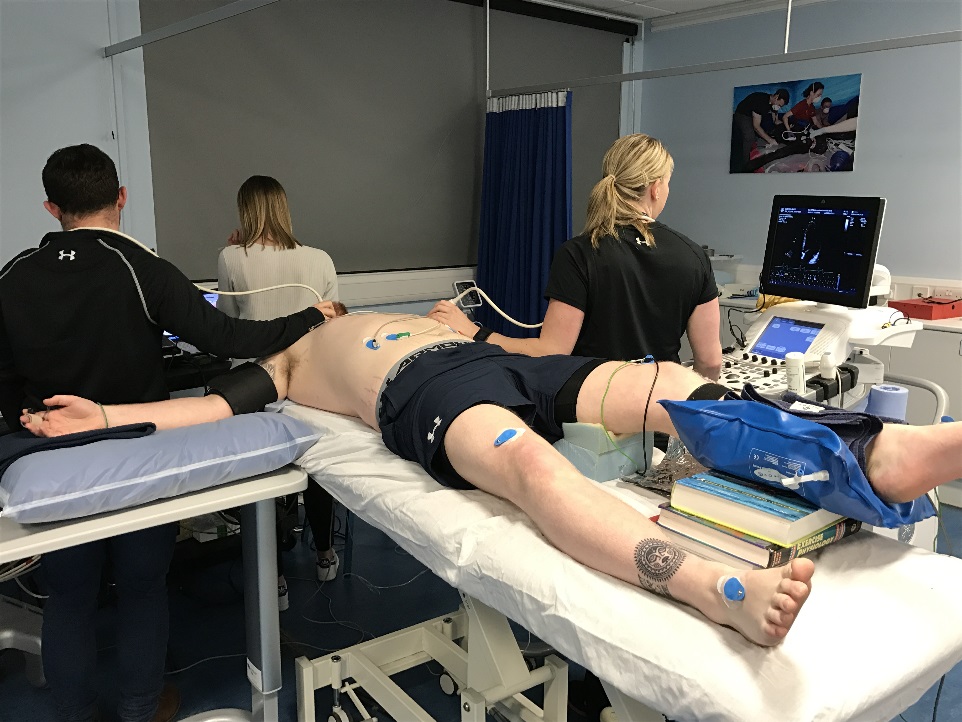
Our blood pressure is controlled by the central nervous system via messages from receptors in our blood vessels. This control is different between young men and women, and young women have lower levels of activation of the nervous system at rest than men. However, we do not understand what sets the long-term nervous system activation; this project aims to establish the key inputs that govern this set point.
The Influence of Habitual Exercise on Healthy Vascular Ageing
Dr Chris Pugh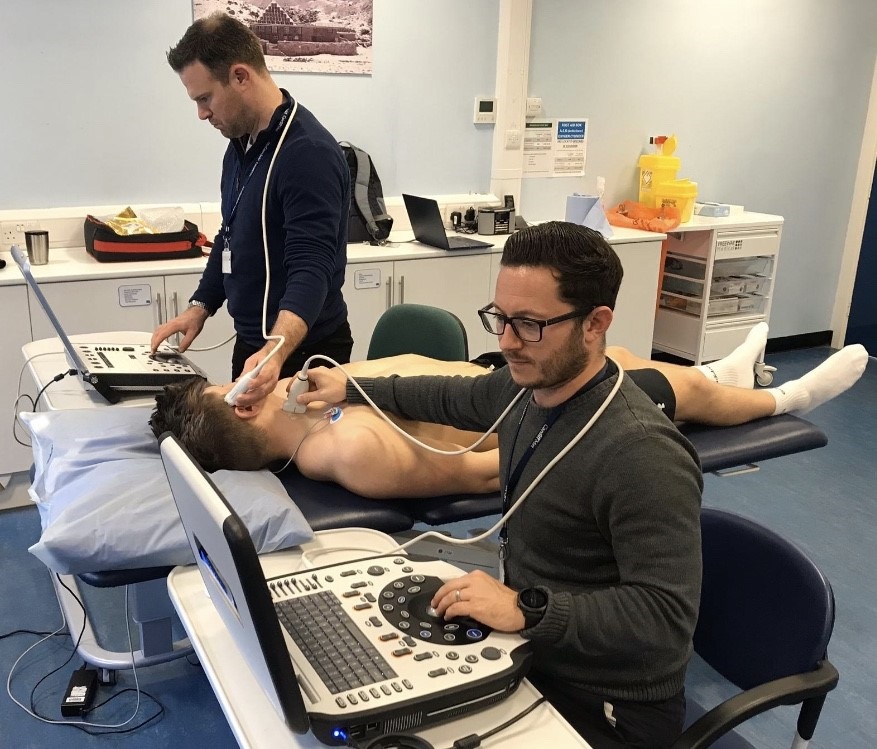
This research programme examines the interaction between healthy ageing and lifelong exercise participation on cardiovascular parameters, including central and peripheral vascular function, autonomic regulation of blood pressure and cerebrovascular function.
The Independent and Combined Effects of Exercise Training and Statin Therapy in the Primary Prevention of Cardiovascular Disease
Dr Chris Pugh
This randomised controlled trial will evaluate the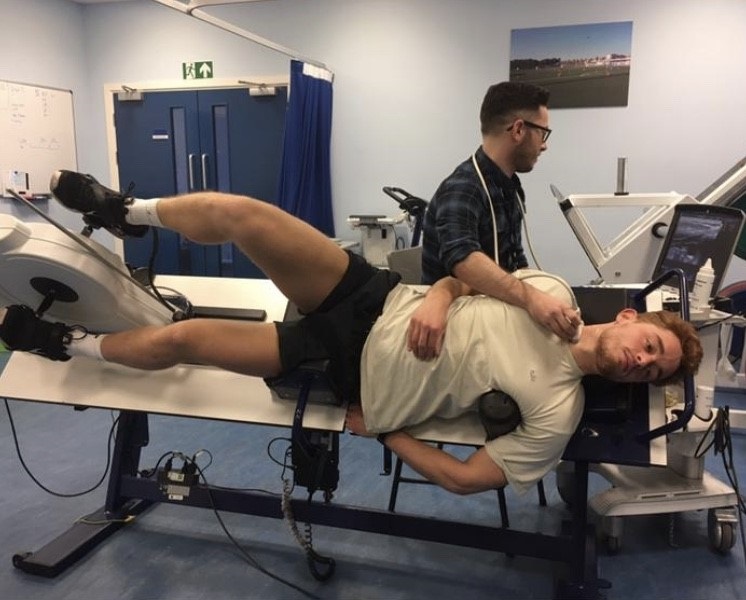 independent and combined effects of exercise training and statin therapy on peripheral and cerebral blood vessel function in individuals at risk of cardiovascular disease.
independent and combined effects of exercise training and statin therapy on peripheral and cerebral blood vessel function in individuals at risk of cardiovascular disease.
The Effects of Cardiorespiratory Fitness and Obesity Status on Peripheral and Cerebral Vascular Function in Children
This research programme examines the influence of cardiorespiratory fitness and obesity status on blood vessel function and structure at different stages of child maturation.
